Volunteering at Elephant Nature Park: What’s It Like?
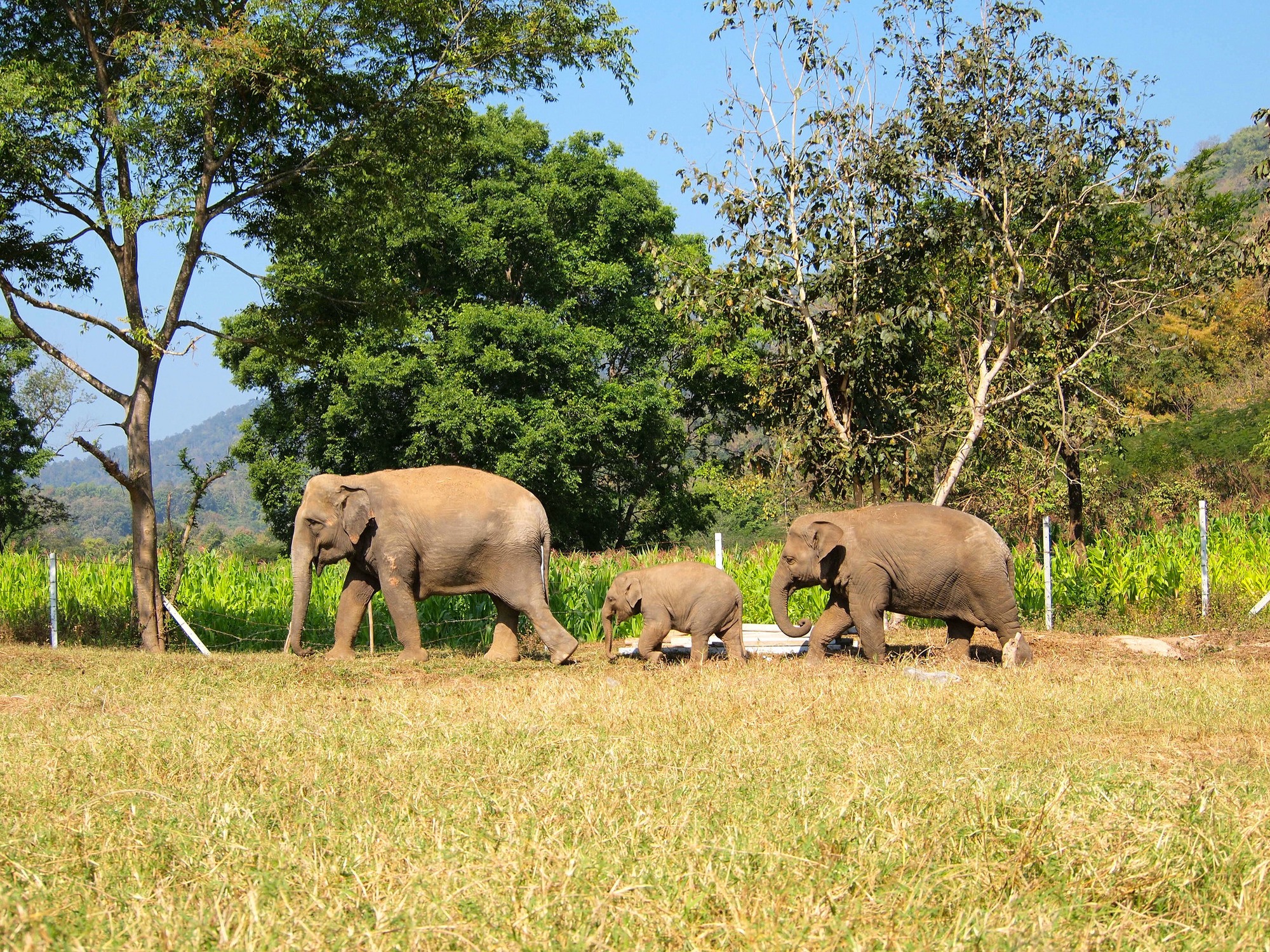
This post was written after a volunteering trip made in February 2014, but information on volunteering is kept as up-to-date as possible!
You may not know this, but I planned my entire Southeast Asia trip around doing one thing: volunteering at an elephant sanctuary.
Ever since I first heard of Elephant Nature Park — a sanctuary for injured and abused elephants in northern Thailand — a few years ago, I put “volunteering with elephants” high up on my bucket list. I knew about the plight of the Asian elephant, and I also knew what Elephant Nature Park was doing to try to combat it. Of all the elephant parks in Thailand I could have gone to, THIS was the only one I felt confident about — I knew my time and money would do good here.
And so, when I decided to go to Asia earlier this year, spending time at ENP was the focus of my entire trip.
Elephant Nature Park offers a variety of options to visit and spend time at the park, including a volunteer program where people can spend anywhere from 1 to 4 weeks living and working with the elephants.
RELATED: Get to Know Elephant Nature Park
I applied in November for a 1-week volunteer stint in February (spots can fill up quickly, especially during high season!), and heard back within about a day that I had been accepted. I then paid a deposit, and began planning the rest of my Asia trip around that one week.
One thing I have found is that, though there's a TON of information on the internet about Elephant Nature Park and the great things it does, there isn't a whole lot of detailed information about the volunteer program itself.
So that's where I come in! Below are some questions I personally had about the program (and some that others have since emailed to me), and my answers to them after being an ENP volunteer myself.
Volunteering at Elephant Nature Park FAQ
What will you do at ENP?
The biggest question, of course, is what do you DO as a volunteer at an elephant sanctuary?
The number of volunteers at ENP each week can range anywhere from about 40 to 80 people. After you arrive at the park and get settled in, you'll be placed into one of 4 lettered groups (A, B, C, D). This group will be your work group for the duration of the week.
There are a variety of chores and tasks to be completed at the park each day, and a whiteboard at the “Meeting Point” is updated each morning with information on what each group will be doing when.
There are two “work” periods during the day: one immediately following breakfast, and one after lunch. The morning work period begins between 8 and 8:30 a.m. (breakfast is served promptly at 7 a.m. each morning), and the afternoon work session usually starts around 1 p.m., after lunch. You usually will work for 1-2 hours during each work period.
Work period jobs include things like:
- Scooping elephant poo (morning job) — Armed with pitchforks and wheelbarrows, your group has to clean up the overnight mess in all the elephant sleeping enclosures.
- Banana tree cutting (morning job) — You'll be put into the back of a utility truck and driven about 45 minutes away to cut down banana trees and load them into a truck.
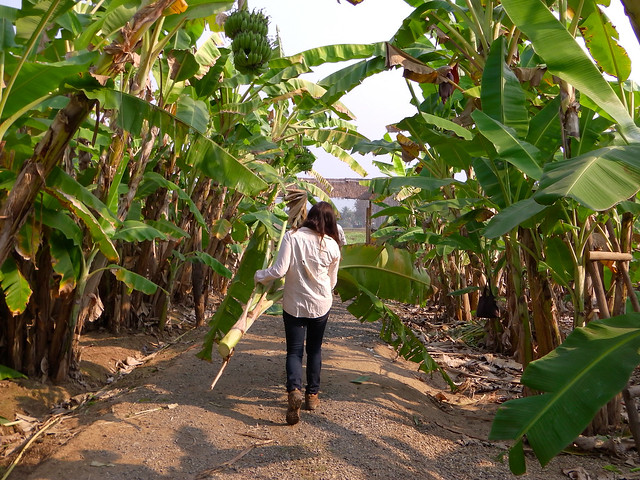
- Preparing elephant food (morning or afternoon job) — Basically cutting fruits/vegetables in the “elephant kitchen” and sometimes delivering food to the mahouts or elephants.
- Banana tree cutting (afternoon job) — The afternoon version of this job entails chopping the trees a group cut down in the morning into bite-sized pieces, and peeling the bark off them.
- Garden pole building (afternoon job) — You gather stones from the river, mix cement, and work on stone “fences” to protect trees and other areas that the park doesn't want the elephants to get too close to.
- Bamboo washing (afternoon job) — Rinsing off bamboo in the river.
- Grass/corn cutting (all-day job) — Every group will get assigned this task once, and it's definitely the most dreaded assignment among volunteers. You are loaded into a utility truck, driven about 40-60 minutes away from the park, and deposited in a field of grass or corn that needs to be cut down with machetes. You spend the next few hours cutting and baling grass or corn stalks. You then have lunch in the field, and then load the truck back up with everything you've baled. The good news? On the day you have this job, you get the afternoon off. The bad news? You aren't done until the truck is full, so these jobs take a while and are an exception to the “working for 1-2 hours at once” rule.

- Random jobs (anytime) — You may also have to do things like unload trucks of donated food, or load bales of hay to deliver to elephants across the river. Your volunteer coordinators will stress that any work assignment can change at any time based on what needs to be done the most.
One work period during your weeklong stay will be an “Ele Walk,” where the volunteer coordinators will walk you around the whole park and tell you stories about the elephants. This is always a favorite!
And around 4 p.m. each afternoon is bath time for many of the elephants. All the volunteers take part in this on Orientation Day, and then you have the option of participating the rest of the time you're at the park.
(NOTE: As ENP has evolved, they've taken a more hands-off approach to caring for the elephants, in order to make sure the animals aren't getting overwhelmed by too much human attention. Bathing the elephants may not be an activity you can participate in anymore.)
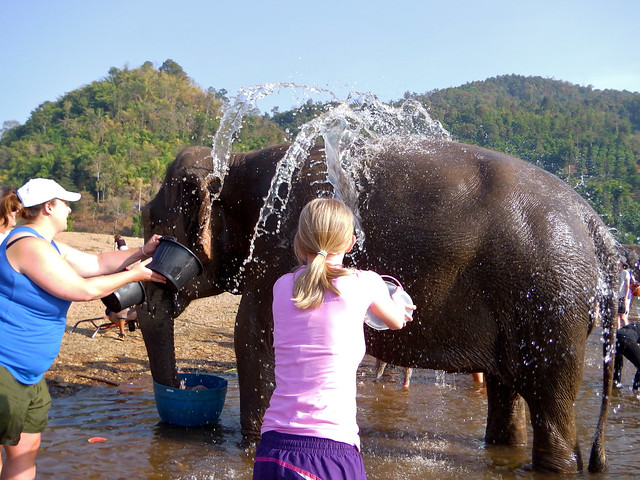
What can you do for fun?
Even though you spend a good portion of the day working at Elephant Nature Park, you'll find that you have plenty of downtime, too.
In the afternoon (especially if you have the work period off after grass/corn cutting), you can talk to the volunteer coordinators about going tubing down the river that runs through the park. They will load you into a truck with a bunch of inner tubes, drive you a few kilometers up the road, and then deposit you in the river. You then float back to the park — it's a lot of fun!
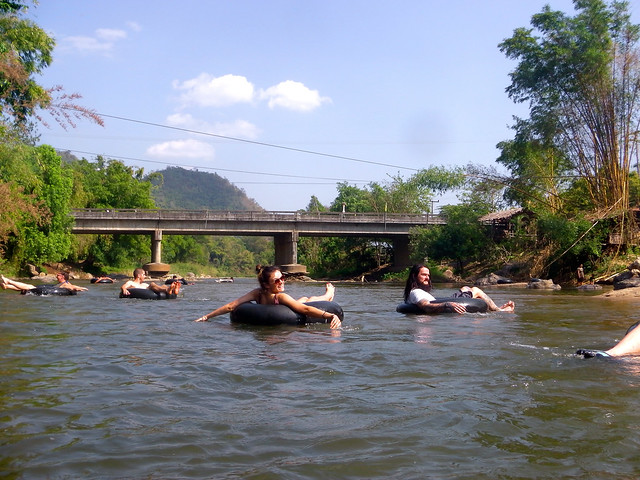
You can also hang out at the viewing platform or skywalk to watch the elephants or simply curl up with a good book (I did this almost every afternoon).

Another free-time option is to go help out at ENP's dog sanctuary. In 2011, when Bangkok and Chiang Mai were subjected to severe flooding, Lek and her team rescued about 400 dogs that owners had abandoned as they fled their homes.
There is a dog volunteer program at ENP, too, but there are never enough dog volunteers, so they will always welcome extra hands to walk the pups or just give them some attention.
In the evenings, the ENP staff will often coordinate an activity — for example, we had a blessing ceremony on our first night, an “elephant gossip session” with resident elephant expert Jodi, a Q&A session with ENP founder Lek, a Thai culture lesson, and a special farewell dinner with traditional music and dancing on our last night at the park.
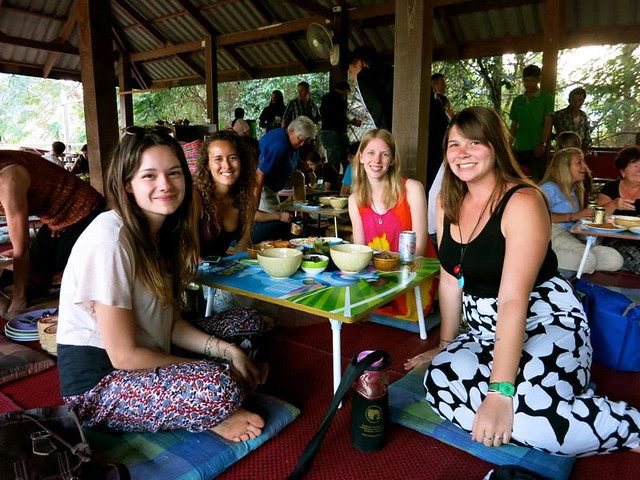
Later in the evening (like, after dinner), a lot of the volunteers in my group would wander up to a little convenience store in the local village to buy beers and snacks. We would sometimes stay there and turn the shop into a “pub,” and other times would go back to ENP to hang out on the viewing platform.
Just keep in mind that “quiet time” kicks in at 10 p.m., and this really isn't the place to get your party on.
There are also massages offered by women from the local village on the top floor of the platform for really great prices. These are also a popular evening activity!
Note: Elephant rides are NOT offered at Elephant Nature Park — elephants are not actually built for riding, and it's actually kind of cruel.
RELATED: Please Don't Ride the Elephants
How much do you interact with the elephants?
This is first and foremost a volunteer opportunity where you spend a lot of time doing tasks to *help* the elephants. But that doesn't mean that you don't get to interact with the animals on a daily basis.
You may have the opportunity to help bathe and feed the elephants each day, and of course you can watch them in their daily interactions.
At least once during your stay you'll also get to go on a “Ele Walk,” where you'll see many of the elephants up close and get to know their stories.
There's NO elephant riding at ENP, and you also won't spend a ton of time touching or walking around with the elephants. The elephants at ENP have been allowed to form their own family groups and routines, and the goal of the volunteer program (and, really, everything that goes on at the park) is to make it as easy as possible for the elephants to live as “normal” a life as possible.
This means that you won't be interacting with them 1-on-1 very often, since that would not happen if they were living in the wild.
What is the accommodation like at Elephant Nature Park?
Accommodations are provided in cabins, with usually 2-3 volunteers per cabin. You get a twin-sized bed with blankets and a mosquito net, and each room has a dedicated toilet and shower usually right across a hallway.
I was actually pleasantly surprised by the cabins — they were rustic, sure, but they were more comfortable than I had been expecting.
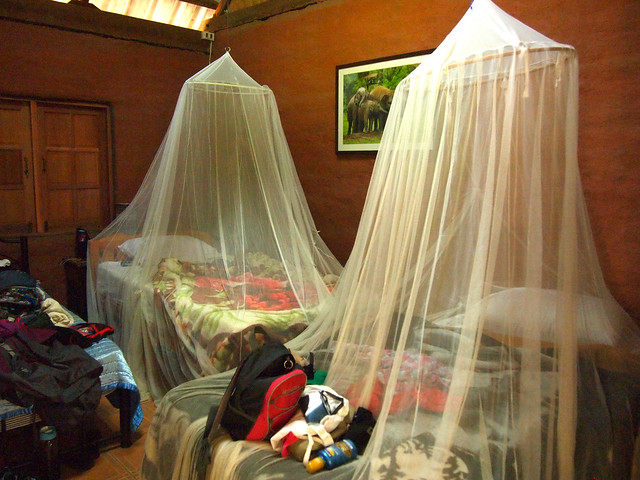
The showers are kind of hit-or-miss when it comes to hot water, but a mention of water running cold to the volunteer coordinators usually had the problem fixed within a few hours.
If you're traveling with someone (be it a friend or significant other), you can get a cabin together. If you're traveling solo, you'll be assigned to a room with either one or two other volunteers of the same gender as you.
There aren't safes in the rooms, so if you're traveling with any valuables it might be a good idea to invest in something that will help keep your things safe. I recommend this portable safe by Pacsafe, which you can secure to anything that's bolted down.
What are meals like at ENP?
Elephant Nature Park serves 3 meals a day: breakfast a 7 a.m., lunch at 11:30 a.m., and dinner at 6 p.m.
All the food at ENP is vegetarian. Don't let this worry you if you're not vegetarian, however. Each meal includes SO MANY different options that there is never any worry of going hungry. Even if you don't love tofu, there are always noodles, veggies, rice, and even french fries to fill your belly with.
Water, tea, and coffee are all provided, and you can buy soft drinks for 20 baht (about 60 cents USD). There is sometimes also a little snack stand open near the skywalk where you can buy snacks (like chips and chocolate).
What should you pack for Elephant Nature Park?
Everyone will be different, of course, but here are a few things I would highly recommend bringing with you:
- Clothes you don't care about — Some of the jobs can get you quite dirty; don't bring your nicest duds to work in. Most volunteers wear shorts and tank tops/t-shirts, though keep conservative Thai customs in mind when you're packing (i.e. no booty shorts or tube tops, please!). I actually bought some cheap shorts and t-shirts at a market before my week at ENP, and then donated them to the park afterwards (they take a lot of the donated clothes to nearby hill tribe villages).
- Long pants and long sleeves — It can get CHILLY here up in the mountains in the evenings. You'll also want to have a long layer for grass/corn cutting day to protect your arms and legs from itchy cuts and scratches.
- Closed-toe shoes — You won't want to be wearing flip-flops for some of the chores. Instead of trainers, I decided to get a pair of Keen Whisper sandals. They have a closed toe, but still let my feet breathe!
- Sunscreen/a hat — You will definitely need it!
- Insect repellant — You will also definitely need this! Get the DEET-heavy stuff (you know, the stuff that's illegal in many countries). During the day you will get bitten by flies, and at night the mosquitoes will come out to feast on you.
- A torch/headlamp — After dark you'll want a light of some sort to help you get around (like, from the platform to your cabin or vice versa), and a headlamp is always a great bet.
- Earplugs — Elephants can be noisy. And so can the 400+ rescued dogs who call ENP home. If one of them starts barking at midnight, ALL of them start barking at midnight. So be sure to pack some good earplugs.
- A towel — You can rent one from the park (usually just old ones that previous volunteers have donated/left behind), but it's easier if you can bring your own. I recommend a quick-drying microfiber towel!
- A sleep sheet — If you want an extra layer of warmth (or just an extra layer between you and the sheets if you're that type of person), I always travel in Asia with a silk sleep sheet. The silk is light and easy to pack, too, which is an added bonus.
The park provides laundry service (60 baht per kilo), so don't worry about bringing multiple outfits for each day. You'll also be given a reusable water bottle and over-the-shoulder sling bag to keep it in on Orientation Day, which is very handy to take around with you while you're working.
Is there wifi at ENP?
Yes and no. Technically there IS wifi at the park, but it is down more often than it is working. We had no wifi the entire week I was there. The staff was nice enough to set up a wired laptop in the evenings, though, for anyone who needed to send a message home.
If you want to be able to keep in touch with people back home while you're at Elephant Nature Park, you'll need an unlocked smartphone. Then you can buy a DTAC Happy SIM card. This is the ONLY SIM CARD THAT WORKS well in this part of Thailand, however. So don't get a SIM from AIS or any other Thai carrier, because chances are you will have no signal.
I had a DTAC card (I think I paid around $20 USD for the SIM and 6 GB of data), and had strong signal at all times at ENP.
How much does volunteering at Elephant Nature Park cost?
The volunteer program at Elephant Nature Park provides an important revenue stream for the park. So, yes, it's a pay-to-play type of experience. All of your money goes to running the park and it's projects, however, so you know it's going to a good cause.
One week of volunteering costs 12,000 baht (about $365 USD in 2018). This includes transport to/from the park (from Chiang Mai), your accommodation, and all your meals for the entire week. You'll also get a volunteer t-shirt on your first day.
Is this good for a solo traveler / couple / family?
After writing this post, I received quite a few emails from all sorts of different types of travelers asking if I thought this volunteer experience was right for them. And my answer is almost always YES.
I volunteered as a solo traveler – and I think the majority of volunteers are solo travelers, simply because Thailand is a really popular place for this type of travel. But there were couples, too, and small groups of friends. There were no families volunteering when I was there, but I think this could be a fantastic way for a family to bond and make some really cool memories.
If you're traveling solo, you'll be paired up with another volunteer or two in a cabin. If you're traveling as a couple or family, though, you will likely get your own room.
Am I too old / young to volunteer at ENP?
Nope, you're probably not. Children 12 and older are welcome at ENP with a parent/guardian, and there's no maximum age for volunteers. We had two men above 60 volunteering when I was there. As long as you're willing to pitch in with the work, ENP would be happy to have you.
What else should you know?
First of all, know that the volunteer program at ENP is extremely popular, especially during high season (Nov.-Feb.). If you want to volunteer at the park during this time, be sure to book well in advance! (Like, months or even a year in advance.)
You should also know that a volunteer week begins on Monday at 9 a.m. at the ENP office in Chiang Mai, Thailand. This is where you sign in, pay any balance you owe, and get your t-shirt. From there, you are taken by mini bus to Elephant Nature Park for your Orientation Day.
Your week ends at 3/3:30 p.m. Sunday, and the same mini buses will take you back to Chiang Mai and drop you off anywhere within the Old Town.
If you are volunteering for more than one week, you can either stay at the park on Sunday night, or book a hostel/hotel for the night in Chiang Mai if you want to go into the city for the night market or just to hang out with new friends.
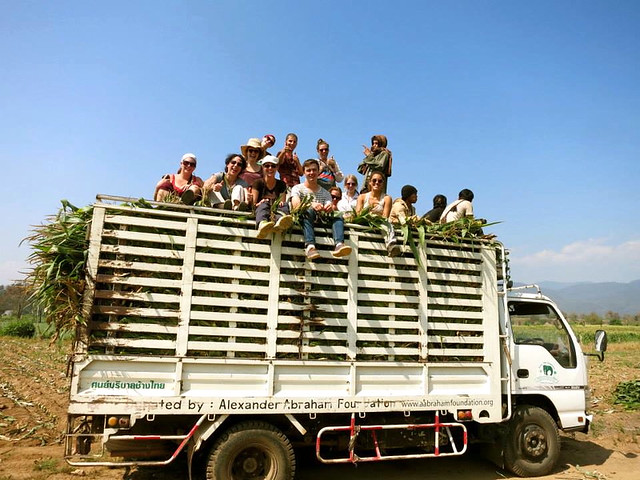
Where should I stay in Chiang Mai?
Most volunteers arrive in Chiang Mai on the Sunday before their volunteer week starts. Some guesthouses close to the Elephant Nature Park office (meaning you won't have very far to walk to catch your ride to the park the next morning) include Somwang Boutique Hotel, Lost in Chiang Mai Guesthouse, and Yin Yang Guesthouse. All of these are very central and close to other noteworthy sites in Chiang Mai, too.
After my week of volunteering, I went back to Chiang Mai for four days and decided to splash out on a slightly fancier place. I stayed at The Twenty Lodge on the other side of the Old Town, and really liked that, too. (Read reviews | Book here)
Or, check out reviews for other hotels in Chiang Mai here.
Would I recommend volunteering at Elephant Nature Park?
YES. Yes, yes, yes a thousand times over. My week at Elephant Nature Park was one of the most memorable and rewarding travel experiences I've had thus far.
The people you will meet — the volunteers, the ENP staff — are incredible, the elephants are beautiful and worth getting to know, and the park's setting is beautiful and relaxing.
I'm happy to have been able to support such a great place, and I would definitely do it again.
How can you book?
You can apply to be an elephant volunteer online:
Read about being a weekly volunteer and book here.
Want to help but don't want to volunteer? Click here.
Read these other posts about Elephant Nature Park:
Do you have any other questions about volunteering at ENP?
Pin it for later:

Amanda Williams is the award-winning blogger behind A Dangerous Business Travel Blog. She has traveled to more than 60 countries on 6 continents from her home base in Ohio, specializing in experiential and thoughtful travel through the US, Europe, and rest of the world. Amanda only shares tips based on her personal experiences and places she's actually traveled!

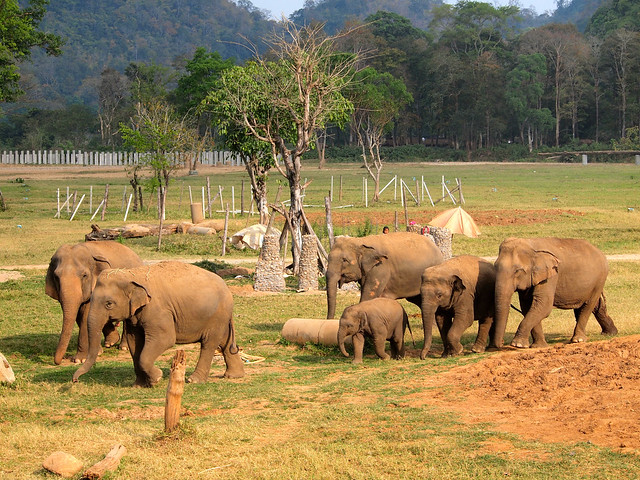
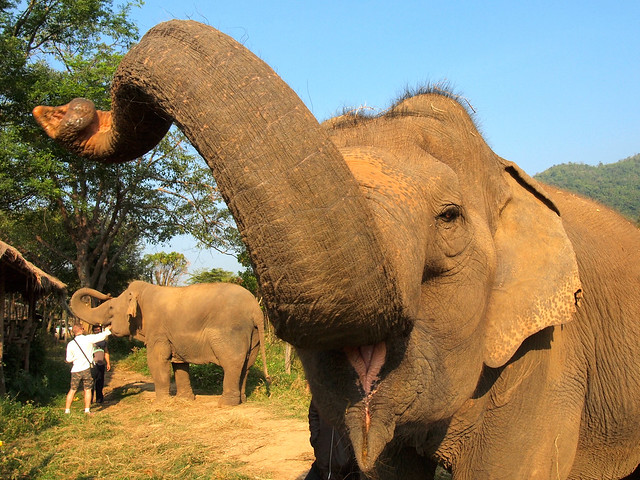
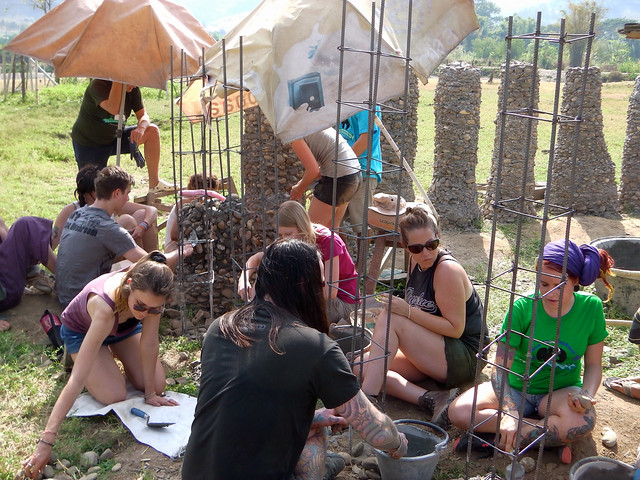
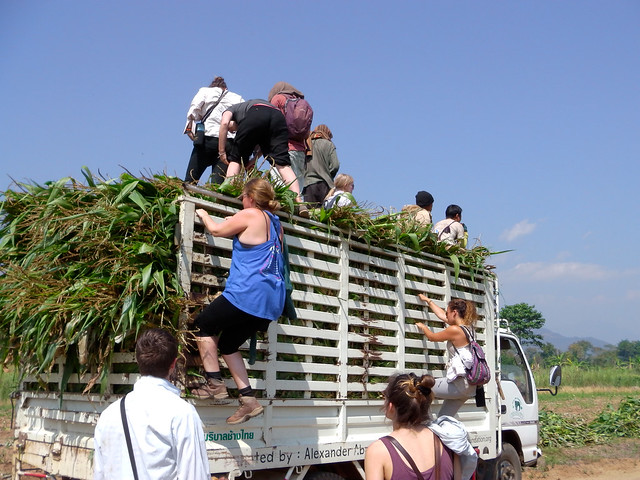
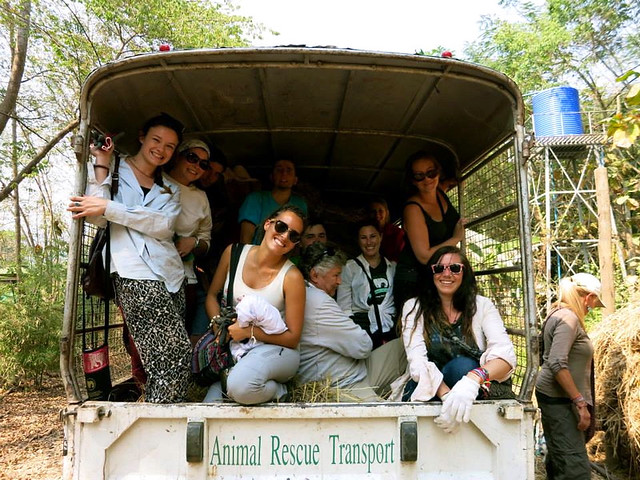

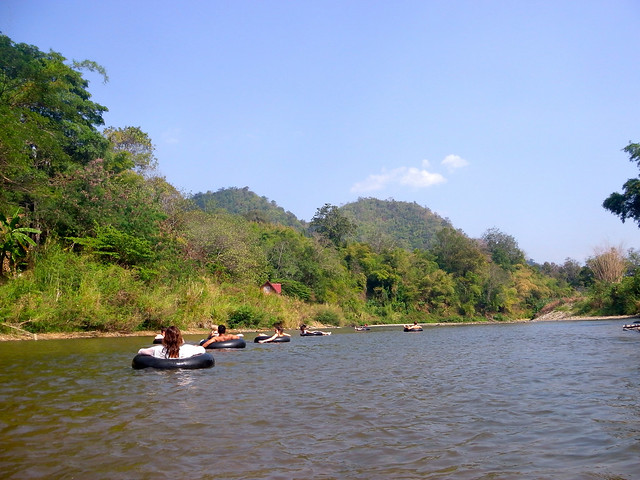
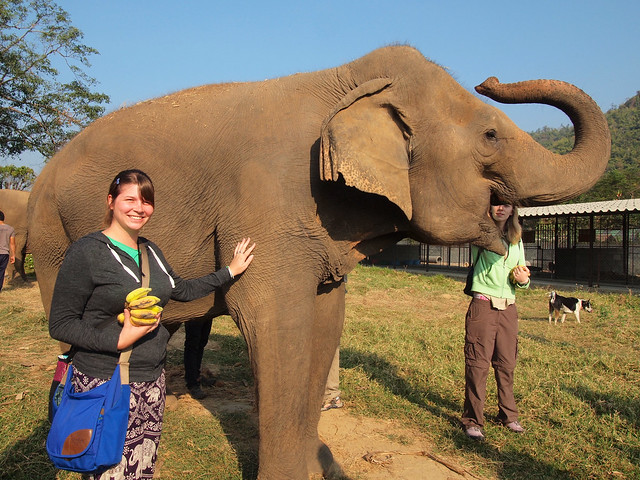
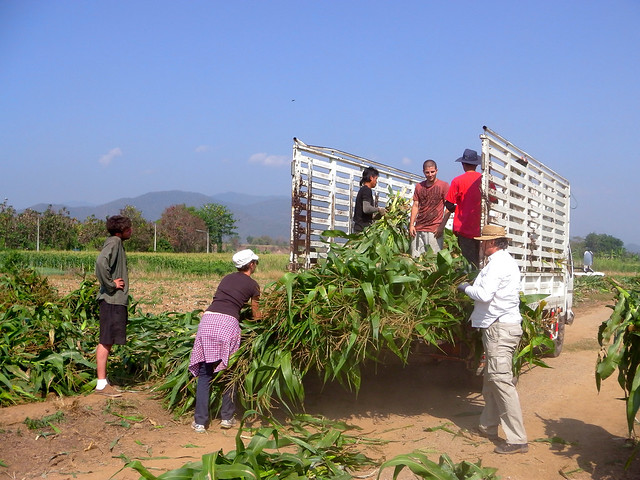
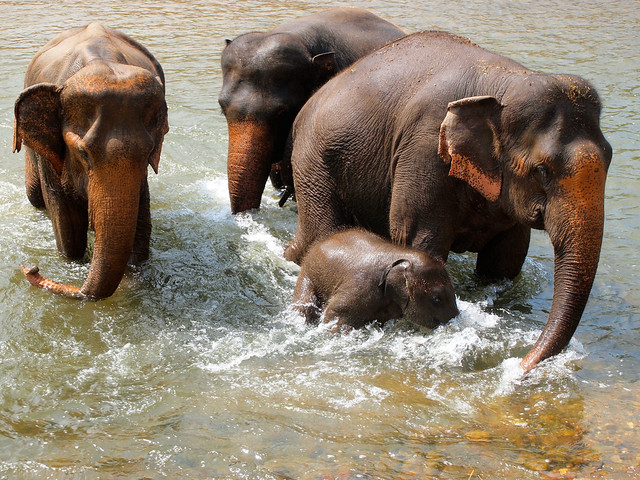
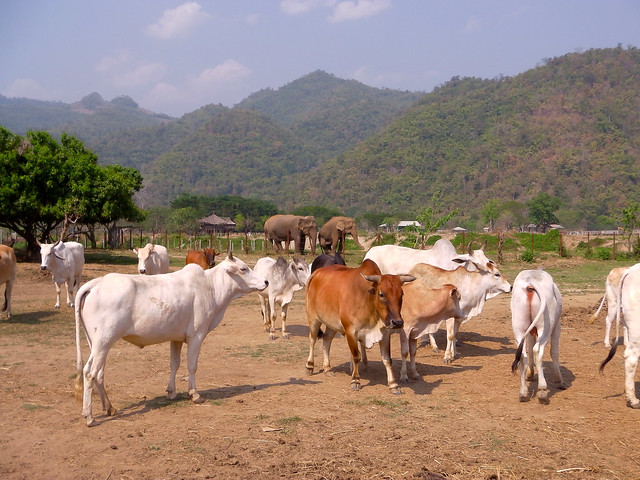
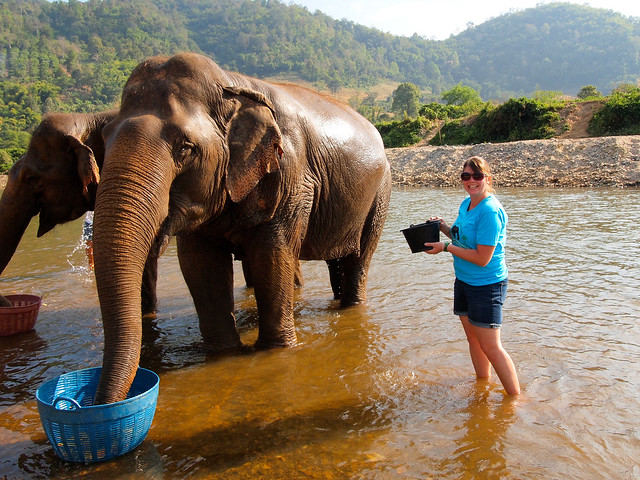
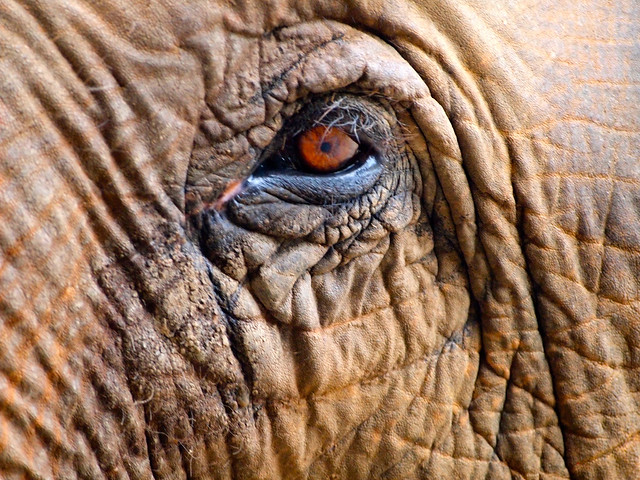
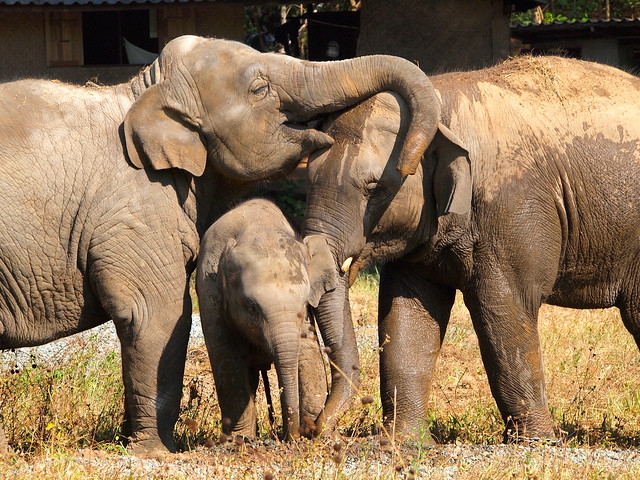
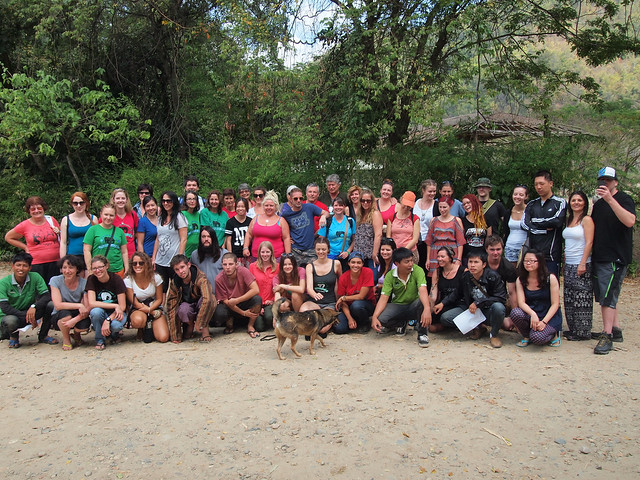









Hi Amanda thank you so much for this post. I was very apprehensive to go and after reeding your post I decided finally to book my volunteer week in the beggining of november:) I’m so excited and counting the days!
Just have a few questions and I would appreciate your feedback:
– did you exchange your money in Thailand? Or did get the money before travelling?
– do the accomodations have door lock? Or there is some place where we can leave money, cellphone, cards etc.
– did you buy a local SIM card for your phone?
– last question have you done other volunteer programs like IVHQ? ( I’m starting to think on new adventures:) )
Thank you ssoooo muuucchhh:)
Hey Daniela! Great to hear that you decided to go!
I always take out local money/exchange when I get to a destination. And yes, I did buy a SIM card (not all of them will work at ENP, though – the one that will is mentioned in the post).
I *think* I remember that the cabins all had padlocks on the doors, and that one person from the room would be responsible for the key. But I’m not 100% sure as it’s been a few years!
And no, I haven’t done any other volunteer programs – this was my first!
Hi Amanda, Huge thank you for your very interesting & informative post! Like others, I’ve been searching for something exactly like this to help with my volunteer week at ENP! I don’t think this has been asked previously: Going from the States, you had a very long flight, as I will have from Canada. I read that you should give yourself 2 days to get over the jet lag. Would you agree with this? Also, would you come a few days early to see a bit of Thailand or would you stay a few days after your volunteer week? Many thanks! Evelyn
Good question, Evelyn! And yes, it’s not a bad idea to get there a day or two early to give yourself time to get over the jet lag. I was in Southeast Asia for a couple weeks before and after my volunteer week, so I would definitely recommend seeing some more of Thailand before/after if you have some time!
Hi amanda ! Thanks for all the information, Im going to ENP in my honeymoon!. And then to travel thailand.
Do you know if we can get a cabin just for the two of us?
Thank you very much!
Hi Silvia! I’m not sure, but you can always ask for a cabin for two (some have 3 beds, but depending on how many volunteers there are, they only put two people in some cabins).
Hi Silvia, when my husband and I visited in 2009, we had a cabin to ourselves. It was rustic, but oh so romantic. Lek and the others there are welcoming and accommodating, and would expect that if you let them know that you’re on your honeymoon, they will do everything they can to get you a private cabin!
Amanda!!! Thank you so much for such a complete, well written and enthusiastic article on ENP!! The photos, the video… all of it was fun to read and see. I am still smiling!! I am sure you have inspired many people to go there and help. Projects such as this one need people like you to make it work and also grow!! 🙂
If I ever make it to Thailand, I will definitely try to be a volunteer. Hugs all the way from Bolivia! Niki
Thanks so much, Niki! I’m so happy that this post is still helping and inspiring so many people!
Oh and I went in May but have been in northern Thailand in December before and the weather was great, hot during the day and a little cooler at night.
OOps my last comment I hope got posted I checked wrong box mellissa
[…] AW: Probably the week I spent volunteering with rescued elephants in northern Thailand. It was an amazing experience, and I also felt like I was doing some good, too. I wrote about it here. […]
(sorry again, haha I wish I can edit my post, or perhaps you can combine them all when they are approved)
the website has two 7 day volunteer choices for elephants, could you let me know what the difference is between the:
Volunteer at Journey to Freedom (7 Days) 15,000THB
Volunteer at Elephant Nature Park (7 Days) 12,000THB
The website has been updated so you can see the dates available and make the deposit for confirmation straight away now I believe.
The Journey to Freedom is a program away from Elephant Nature Park – I believe it’s in Northern Thailand, where you help with elephants and also volunteer in a small mountain village. They have more about it here: http://www.elephantnaturepark.org/enp/visit-volunteer/projects/viewproperty/journey-to-freedom-weekly-volunteer/47
Hi,
I really need to get the opinion from every one or anyone who’s gone. HELP!!!! Do you think going for 1 week is enough?
I would be going as a volunteer vet and I can’t see how 1 week is enough. If it takes me approximately 2 days to fly to get there spend my entire savings for a week. As a vet volunteer I can stay 4 weeks to help. That;s what makes sense to me and that is what I really want to do. there is only 1 week available this december or I have to wait till december 2017 I could cry wanted to go now in next several months
I unfortunately can’t speak about the vet program since I’m not a vet. I think they do prefer vets spend longer than a week, though. As a regular volunteer, a week was long enough (but I was also traveling elsewhere in Southeast Asia for a few weeks, so it wasn’t just a 7-day trip for me).
Hi Nan,
I’m a vet nurse who did the vet program for a week. I would say just go for the week if you are that keen to go soon. The other veterinary people I did it with just did the one week, it’s so popular and they can’t take many at a time so don’t think many get to do more than a week. Unless they plan way way in advance!
Why don’t you stay for longer but do a week with the dogs and a week as a regular volunteer? You are still there and if I had my time again that’s what I would do if I had the time.
And make sure you leave yourself some time to travel!
Feel free to ask me any questions 🙂
Hi Melissa ,
I’m so glad to hear from a vet who was there what did you actually get to do with the elephants in terms of medically treating them?
There is only 1 week available now I believe I can’t stay any longer thats it. so I can’t say i’ll help dogs and stay longer . I don’t mean this to sound terrible ,I am not going for dogs, we have so many here who need help too. Of course when I’m there I would help with dogs I am going for the elephants with little money I need to spend time with them . I don’t even have enough to travel around. did you say you guys only stayed a week? was that your plan with the elephants? was that enough time. how was the week Where did you travel from . I was told December was horribly cold but from what you are saying thats not true. I am so torn right now help!!.
Hi Nan, I went on my own but all the other vet volunteers were also staying just for the week, but were also doing travel before or after the elephants.
Basically you assist the permanent vet and vet nurse with their duties. So a normal day you help out with the treatments like foot baths, abscess drains then usually go over to the dogs and help out there then in the arvo there’s more treatments then there might be some non-daily duties like worming. You also help prepare food that is used while treatments are being done to keep the eles from taking off.
I meant as well as the dogs you could do a week or two as a regular elephant volunteer, which is what Amanda did. So you still have plenty of contact and learn about the elephants and then also meet and create friendships with the non vet volunteers.
And even with the dogs you still have the elephants around which is nice.
It does seem a very long way to come for just a week so if you definitely want to just do vet volunteering I would lean toward waiting until you can volunteer for longer.
I came from Australia and was away for about 3 weeks. It’s around a 9 hour flight.
I hope I’ve answered everything!
Thank you, but if I’m only going there for 1 week and no where else just fly there and back do you think 1 week is enough If I wait to Dec of 17 then I come for 4 weeks. but they are booked out that far so if I don’t take the 1 then it’s over a year away. But I don’t know if it’s better to use money for later then all for now what do you think when I am saving pennies to do this right. Do you know what the weather is like in December? I can’t get a good answer from anyone when is it best weather wise to go when it’s not too cold ortoo hot or rainy season
Thank you for your help!!!!
December is generally a good time to go. The “cool” season in northern Thailand runs October-February, meaning you shouldn’t run into much rain or any haze from the fires that sometimes burn during the hot season (and this is also why ENP gets so booked up during those months!).
You could consider doing what Melissa suggested below: do the vet program for a week, and then see if you can volunteer with the dogs for an additional week. When I was there, they were always short on dog volunteers. The dogs are still at ENP, though, so you still get to be around the elephants and other volunteers, too.
Also, I believe it is rain season during June, what happens when the rain hits? do we still work? as I read the rain comes hard but fast.
I can’t speak to that since I went in February. Yes, I imagine you’ll still work, but I’m sure they would let you shelter during any heavy rain that comes through.
Hi Amanda!
This sounds like such an amazing thing to do.
I am backpacking around Asia and would love to volunteer with the elephants and the dogs. As I am carrying a few stuff already, was it safe to leave everything behind at the accommodation? It seems that most people are just there for the volunteer work.
-should I bring my own shampoo/wash?
-did you find most people spent their spare time helping the dogs, or was everyone usually too tired after the elephant work?
-can I bring my phone while working? I don’t have a camera so I would be relying on my iPhone to take snaps
Hey Jane! Do you mean the accommodation at the elephant park? I would say yes, your stuff will be perfectly safe. It’s only other volunteers and staff around the cabins anyway, and I’ve never heard of anything going missing. If you’re worried about valuables, you can always look into getting a portable mesh safe like this one: http://amzn.to/231AfNA
Yes, bring your own shampoo and wash, as none is provided.
Some people spent their free time with the dogs, but not everyone. (I, for example, don’t really like dogs, so I didn’t spend a ton of time over there.)
And yes, you can bring your phone when working, but I would make sure you have a secure pocket to keep it in so it doesn’t fall out/get dirty (some of the work WILL get you dirty!).
Hi! I’m going in the summer with my friend, we booked separately though should we email ahead of time and ask to be put in the same room or is that arranged when you arrive? Thanks so much!
It wouldn’t hurt to send them an email ahead of time – from what I remember, they already had the room assignments set up when we got there (though it probably wouldn’t be too difficult to change!).
Hi Amanda,
This is a wonderful post. Can you please recommend the hotel/hostel you stayed at prior to the trip? It is my first time in Chiangmai and I would love to explore the place either before or after my 7 days volunteering! Thank you so much!
Sure thing! I stayed at the Smile House Guesthouse – it’s actually linked in this post in the “What should you know?” section, under the photo.
Hi!!!
I want to do the same, maybe this year! Can you tell me the amount that you have to pay to confirm the reservation?
Thanks!!!!
I’m not exactly sure of the amount, as it’s been a couple years since I volunteered. It was a percentage of the total, though – so maybe $100 or so? You can always email ENP to find out for sure!
[…] at Elephant Natural Park in […]
This helped me so much! Thank you!
So it is possible to stay up to 4 weeks?
Because on the websites it says only up to 2 weeks, or up to 4 weeks for vets..
Thanks in advance! 🙂
You would have to ask ENP – I’m not sure if you would be able to do four weeks with the elephants (but you probably could volunteer for 2 weeks with the elephants and 2 weeks with the dogs!).